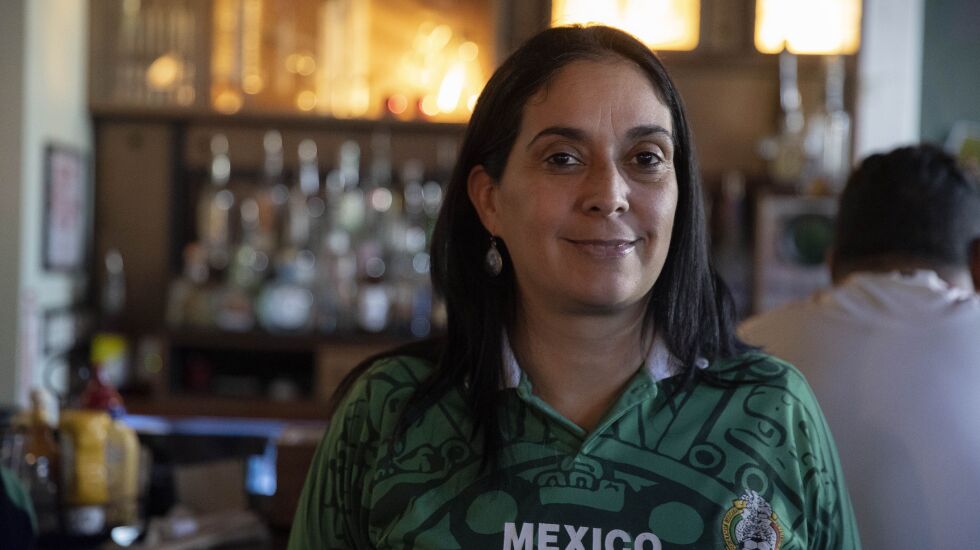
For most of his life, Rodolfo Santos has thought of himself as American and Mexican, but since the 2022 World Cup began, he’s tried something new.
“Hadaf,” the 10-year-old said, pronouncing a word in Arabic that means gooooooooooal.
The 5th grader goes to a Southwest Side elementary school where all the classrooms have adopted a new country to study and follow throughout the global soccer tournament. His class picked Qatar, where many speak Arabic.
Teachers at Nathanael Greene Elementary, a pre-K through 5th grade Chicago Public School in McKinley Park, launched the program to get students and families more engaged in the international event.
“A lot of our families are Latino and at home they’re watching the World Cup. This is a way for us to start a conversation with them and make a connection,” said Adriana Kenning, a 2nd and 3rd grade teacher spearheading the program.
While soccer is not the most popular sport in the United States, it is wildly popular around the world, including in Central and South America. The neighborhood surrounding the school has a global mix of residents, according to the Chicago Health Atlas, many of whom are Latino.

Classes at the school adopted their countries the day before the games started.
Lorena Grajeda, the homeroom teacher for Santos’ class, selected Qatar.
Her students have focused on fun facts about the country to share with the rest of the school.
“The red on the flag means blood and war, and the white means peace,” Santos said.
“About 2 to 3 million people live there,” said another student, pointing out that it’s smaller than Chicago. “And it’s all flat and a desert,” another said.
Some allegiances die hard, however, so the class also closely followed one South American team to support a classmate.
Southwest Side CPS students gather at the end of a school day for a World Cup final of their own— a showdown between teachers and students. Story TK. @Suntimes/@Report4America pic.twitter.com/Q04KeOOKth
— Michael Loria (@mchael_mchael) December 3, 2022
“I like Ecuador because it’s my homeland,” said Jonathan Dominguez, whose mother is from Ecuador.
The Ecuadorians lost in Qatar, but, in Chicago, Dominguez played a notable role in a soccer showdown between teachers and students.
All 300 or so students attended the game in the school gymnasium, some with their faces painted and holding posters to support their schoolmates, together for an all-school assembly for the first time since the pandemic began.

The teachers won the first match against a squad of 3rd and 4th graders but went into the game against 5th graders winded.
Dominguez led the small-statured underdogs to a 1-0 miracle on hardwood.
“I want to be like Messi,” he said, sweating after his goal and speaking about Argentine star striker Lionel Messi. “He can take five defenders and score.”
Manuela De La Cruz, an assistant who helps with Grajeda’s class, smiled from the sidelines as the children screamed in support.
“After everything that we’ve been through with COVID and lockdown, we needed this,” said the 10-year veteran of the school.
“We needed this boost, the camaraderie of having everyone together.”
Michael Loria is a staff reporter at the Chicago Sun-Times via Report for America, a not-for-profit journalism program that aims to bolster the paper’s coverage of communities on the South Side and West Side.








